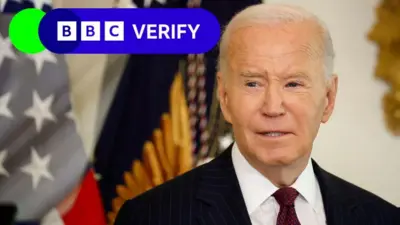We've updated our Privacy and Cookies Policy
We've made some important changes to our Privacy and Cookies Policy and we want you to know what this means for you and your data.
Taiwanese phone firm HTC loses Apple patent case ruling
Top Stories
The Taiwanese mobile-phone maker HTC has lost a US patent battle with Apple.
The International Trade Commission found that HTC infringed one patent held by the US technology giant.
Any HTC phones that use the technology covered by the patent will be banned from sale in the US from 19 April, 2012.
Apple is currently fighting a number of global legal battles over technology rights, and had initially claimed that HTC was ignoring 10 patents.
According to the Reuters news agency, HTC called the ruling "a win" for the firm as it impacted only one patent, rather than the 10 as initially claimed.
Top Stories
"We are very pleased with the determination and we respect it," HTC said in a statement.
Minimal disruption
HTC said the patent in question related to a small user-interface feature often called "data tapping", which allowed users to grab embedded information, such as a phone number, and do something with it, such as make a call.
The company said it would completely remove it from all their phones soon.
Analysts said that this removal should allow HTC to avoid any disruption to its business in the US.
Top Stories
"We see a very minimal impact of this as there could be a workaround for the same technology that HTC can implement in the next four months," said Jayesh Easwaramony from Frost & Sullivan.
Broader battle
HTC is the world's fourth-largest smartphone maker, and most of its smartphones run Google's Android operating system, although the firm recently launched a series of phones using Microsoft's Windows Phone 7 software.
Apple is embroiled in numerous patent disputes in Europe, Asia and Australia with other smartphone makers that run Android, most famously its South Korean rival Samsung.
In the current case against HTC, after the initial claims by Apple, six charges of alleged patent infringement were dropped.
An International Trade Commission (ITC) judge then ruled that HTC had violated two of the remaining four patents; the ITC is a government agency that has the power to block the import of products into the US which it believes violate patents.
The ITC's latest, and final ruling, ultimately found that only one patent had been infringed.
"It's a sigh of relief for HTC because they had to give in to only one feature," said Mr Easwaramony.
Top Stories
More to explore
Most read
Content is not available








